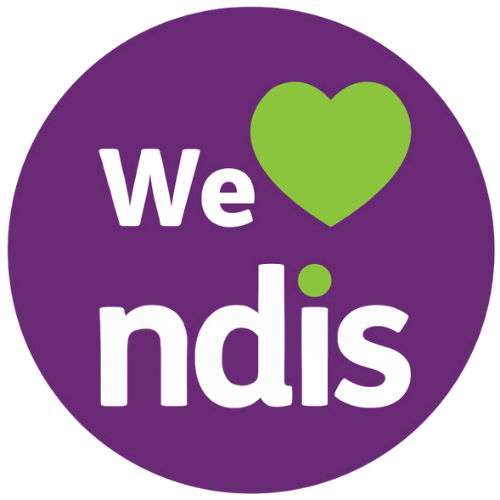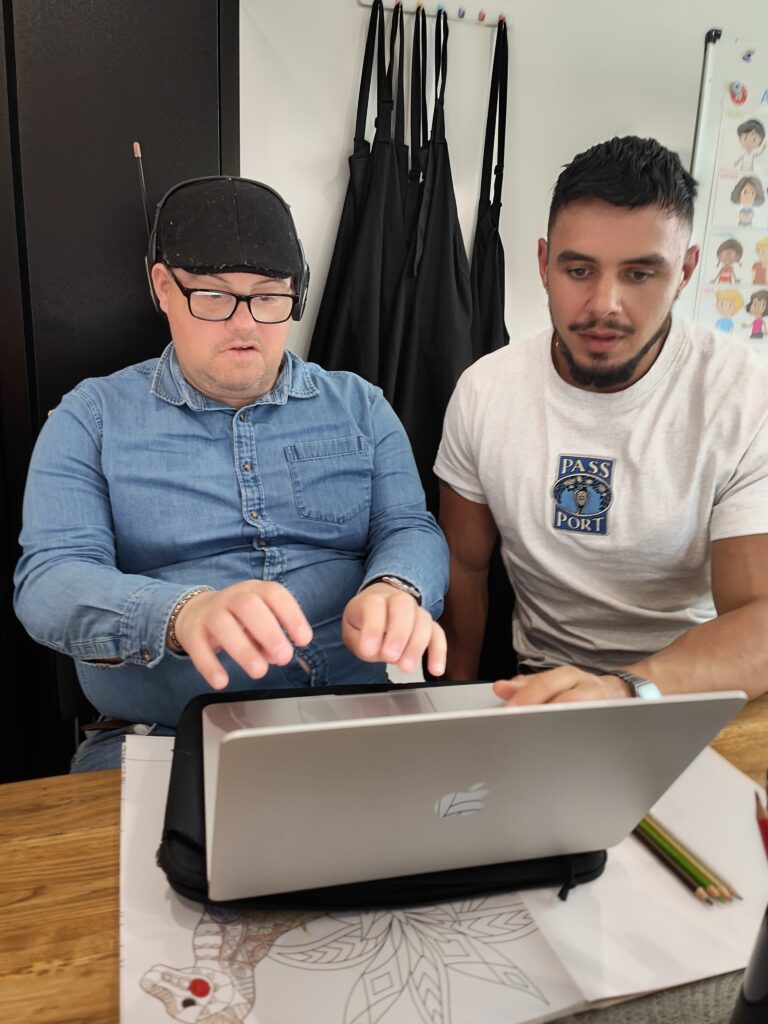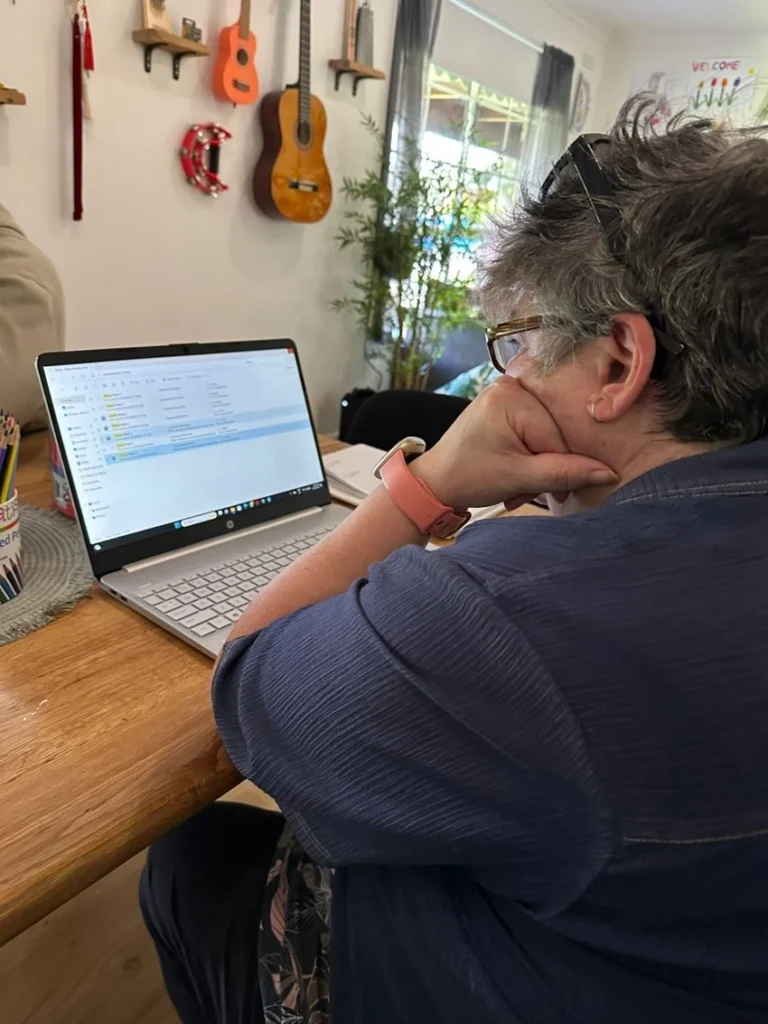Dorinda, a participant at Maudcare, is a true testament to the power of creative writing. She has a real passion for crafting words and narratives, she has found solace, self-expression, and joy in the world of creative writing. Her stories and poems are not just a means of communication but a window into her imagination and deep emotions. Through creative writing, Dorinda has discovered her voice, and her words have the remarkable ability to touch hearts and inspire herself and those around her.
In a world often filled with noise and chaos, the power of the written word can offer solace, healing, and empowerment. Creative writing, the art of expressing thoughts, emotions, and stories through the written word, has proven to be a transformative tool for individuals facing psychosocial challenges and those on the autism spectrum. In this blog, we’ll explore the positive impacts that creative writing can have on these individuals, emphasizing its role in fostering self-expression, emotional well-being, and personal growth.
1. Finding a Voice Amidst Silence
For individuals dealing with psychosocial challenges, creative writing provides a unique channel for self-expression. It offers a safe space to articulate complex emotions, thoughts, and experiences that may be challenging to convey verbally. This newfound ability to voice their inner world can lead to a profound sense of relief, validation, and self-empowerment.
2. Healing Through Words
Creative writing serves as a therapeutic outlet, enabling individuals to confront and process their emotional wounds. By putting their thoughts and feelings on paper, they embark on a healing journey, finding closure and resilience in the process. This can be especially powerful for those dealing with trauma, anxiety, depression, or other mental health concerns.
3. Enhancing Communication Skills
For both individuals with psychosocial challenges and those on the autism spectrum, communication can be a significant hurdle. Creative writing offers a structured way to improve language and communication skills. It encourages the development of clarity, coherence, and creativity in conveying ideas, enhancing both written and verbal communication.
4. Boosting Self-Esteem and Confidence
Completing writing projects, whether it’s a short story, poem, or journal entry, can be a confidence booster. The sense of accomplishment derived from creating something meaningful with words can uplift self-esteem and instill a belief in one’s abilities. This newfound confidence often extends into other aspects of life.
5. Bridging the Social Divide
For individuals on the autism spectrum, navigating social interactions can be challenging. Engaging in creative writing activities within a supportive group setting can help bridge social divides. Collaborative storytelling, sharing ideas, and providing feedback foster a sense of belonging and improve social skills.

6. Regulating Emotions
Creative writing can serve as an emotional anchor for individuals with psychosocial challenges and autism. It aids in recognizing and regulating emotions, teaching individuals how to cope with stress, anxiety, and overwhelming feelings constructively.
7. Exploring Self-Identity
Creative writing encourages introspection and self-reflection. It becomes a tool for individuals to explore their own beliefs, values, and identity. The process of self-discovery can lead to a deeper understanding of oneself and a more profound connection with one’s inner world.
8. Strengthening Cognitive Skills
Engaging in creative writing enhances cognitive abilities such as critical thinking, problem-solving, and creativity. These skills not only improve writing but also have broader applications in daily life and professional settings.
9. A Therapeutic Tool
For mental health professionals, creative writing is often used as a therapeutic intervention. Journaling, poetry therapy, and narrative therapy are examples of approaches that leverage the healing power of words to support individuals in their recovery journeys.
10. A Source of Joy and Fulfillment

Last but not least, creative writing offers a source of joy and fulfillment. Crafting stories, poems, or essays can be a deeply satisfying and enjoyable activity. It allows individuals to explore their creativity and imagination, fostering a lifelong love for writing.
In conclusion, creative writing is a transformative force that brings about positive change in the lives of individuals facing psychosocial challenges and those on the autism spectrum.
Through the written word, they find a means of expression, a path to healing, and a source of personal growth. It is a testament to the enduring power of human creativity and the boundless potential of words to inspire, uplift, and transform lives.





